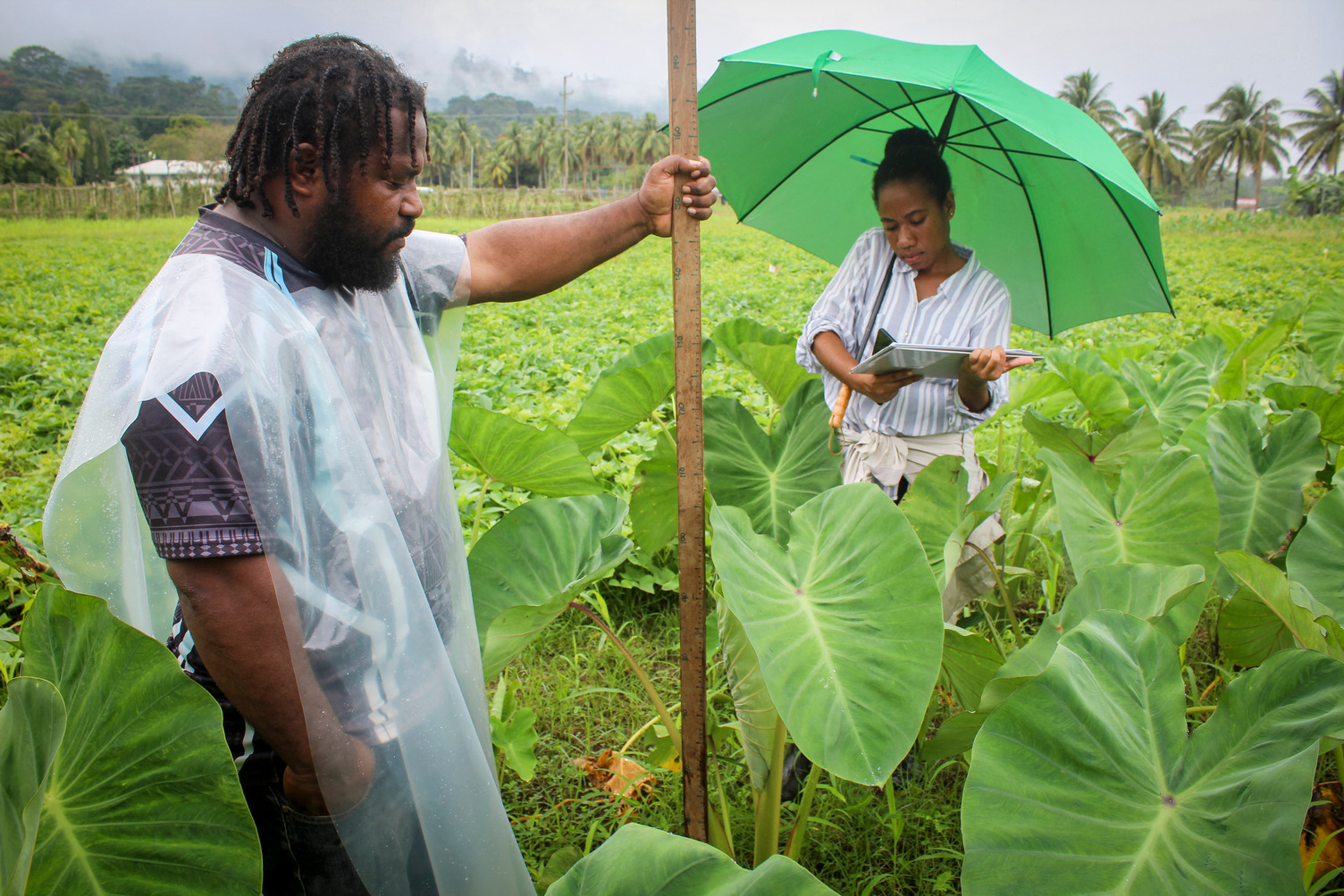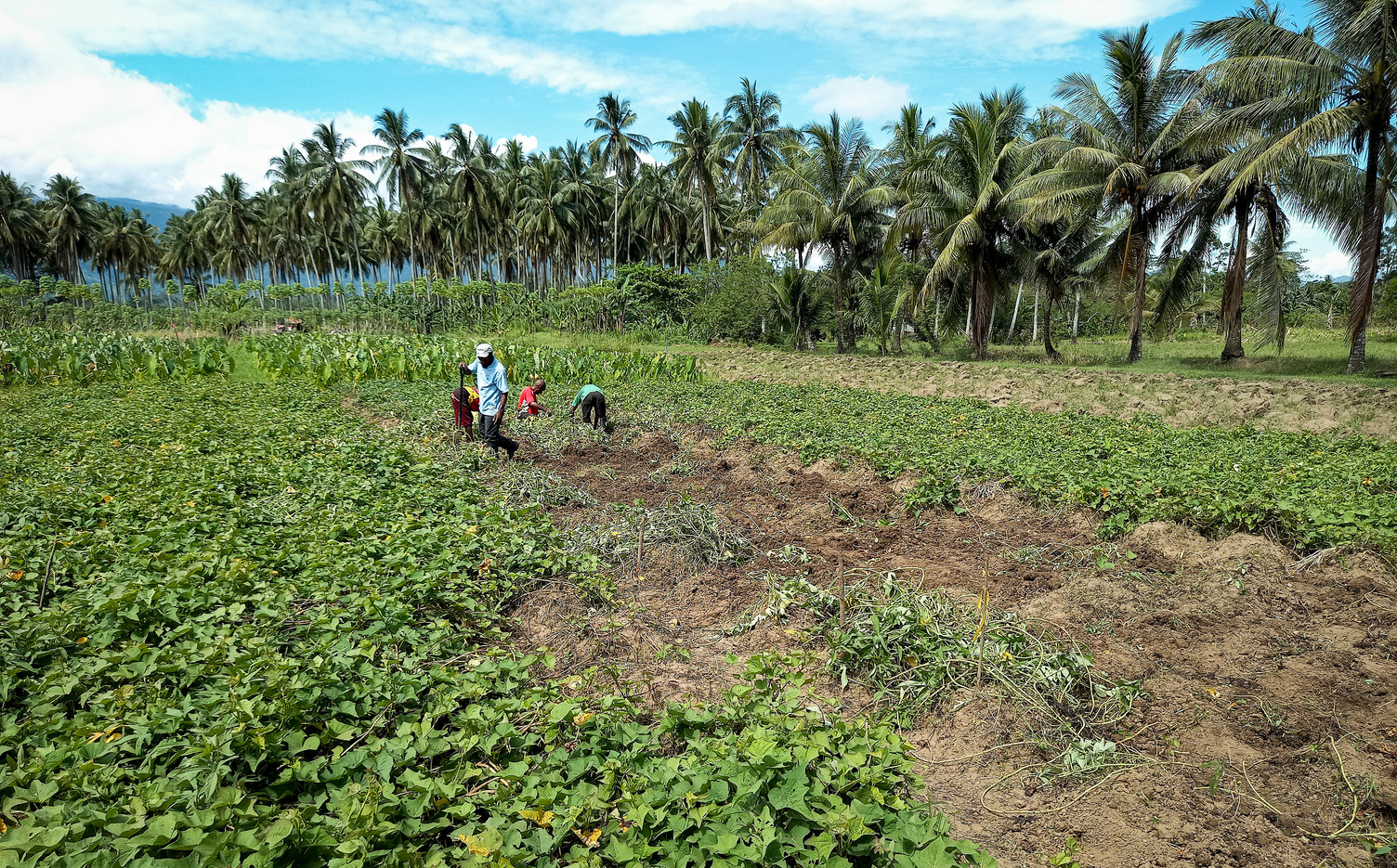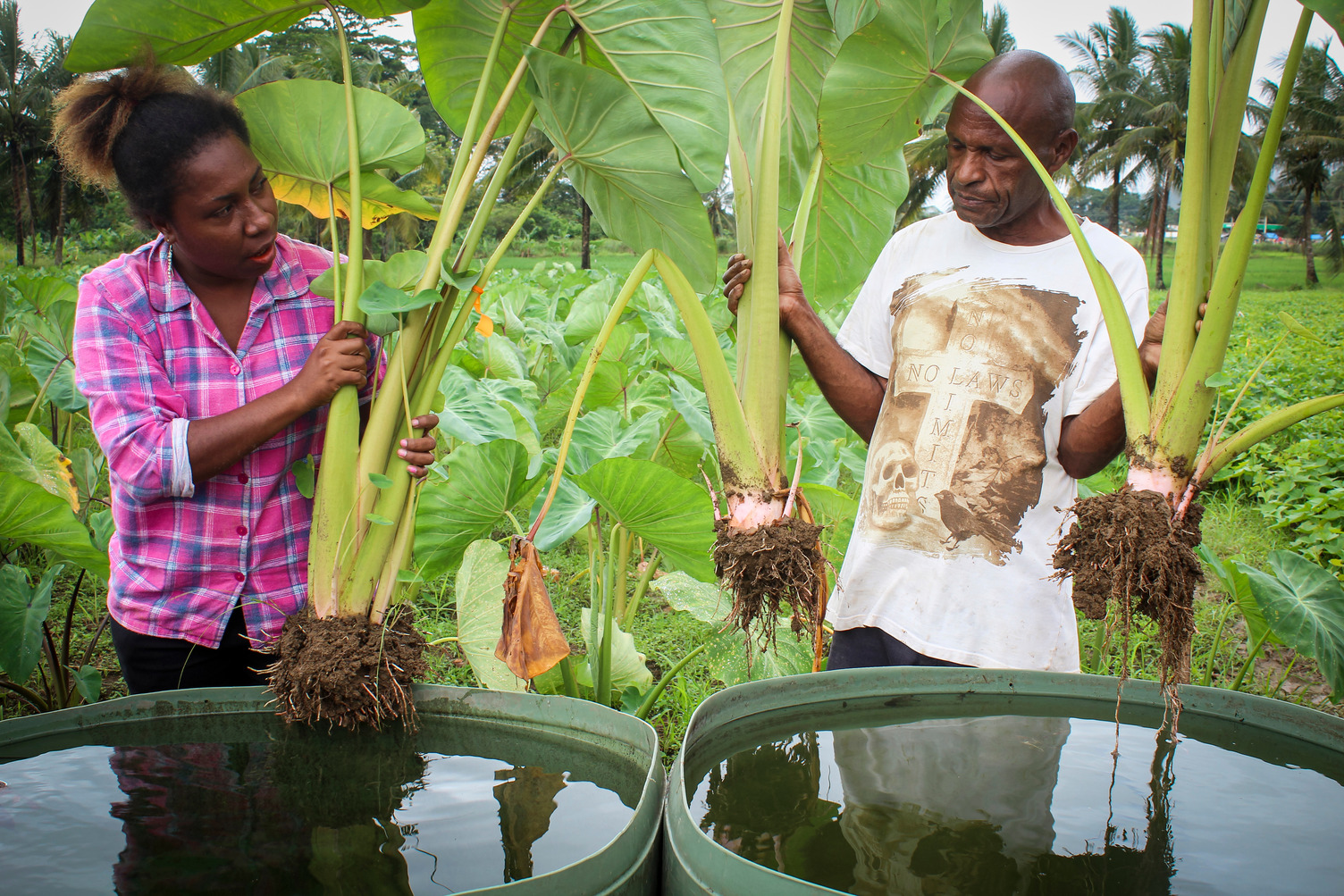Rural communities in Pacific continue to be the most vulnerable in the world to the worsening impacts of climate change. Relatively small in population and geographically isolated with fragile natural environments, Pacific island countries experience the full impact of natural disasters.
According to the United Nation's Food and Agriculture Organization, the growing risks faced by the Pacific region are evident in increasing crop failures, new patterns of pests and diseases and food shortages.
In Papua New Guinea (PNG), large portions of the population depend on small-scale agriculture for their livelihoods, with recent history showing how devastating extreme weather can be on rural communities.
The El-Nino-induced droughts of 1997 and 2015 to 2016, which were rapidly followed by frosts, resulted in crops loss and widespread hunger, malnutrition, and death due to starvation in the PNG Highlands.
In response to this devastation, ACIAR has been supporting Australian and PNG researchers to help communities become more climate resilient by strengthening agricultural production while protecting farming communities during extreme weather conditions.
The project, Climate-smart agriculture opportunities for improved food production in PNG, aims to use seasonal climate information to inform food production decisions made by farmers and in doing so, improve food security outcomes for rural communities.
The project is led by the Australian National University (ANU), working in partnership with the PNG National Weather Service (NWS), National Agriculture Research Institute (NARI), Fresh Produce Development Agency (FPDA) and other PNG partners.
Seasonal climate forecasting
The project is examining how seasonal climate forecasts can be developed and integrated into farming practices across the country. By predicting the average seasonal conditions many months in advance, researchers hope to better inform farmers as they plan their farming activities.
'At the moment we are focusing on the three-month to six-month time-frame and looking at the sorts of decisions that farmers might make,' says ACIAR Social Systems Research Program Manager Dr Clemens Grünbühel.
'These decisions could be around irrigation, crop choice, land preparation, use of agro-chemicals, all depending on the forecast for that period.
'Helping communities plan their farming activities ahead of seasonal climate conditions is an important way to improve resilience in food production systems,' says Dr Grünbühel.

As part of the project, the Australian Bureau of Meteorology is providing seasonal climate forecasts to PNG. However, the highly complex nature of these reports are not always easily understood by smallholder farmers. A key part of the research effort has been to understand how these climate forecasts can be delivered and more easily understood by farming communities.
Identifying the information needs of local farmers
To assist the project team in communicating the long-term forecasts, household-level data was collected to give an insight into the information needs of local farmers.
'The surveys have provided critical insights into the requirements of communities as-a-whole as well as the different needs of both men and women,' says project leader Dr Steven Crimp from the ANU.
'The surveys show that information needs of men and women farmers are different. By examining varying preferences, we ensure that the seasonal forecast information is contextualised in a way that is relevant for both genders.'
The project is developing a Seasonal Farm Advisory (SFA), that contains valuable information such as rainfall prediction, historical weather patterns and soil moisture tracking. The SFA also includes practical suggestions like fertiliser and land preparation practices, as well as what crop choices farmers could make for the forecasted period.

'Learning about farmer practices and preferences helps shape the design of the farm advisory that we are developing. It is also helping to identify the necessary modes of information extension to ensure maximum uptake of the SFA,' says Dr Crimp.
Field trials across PNG
Household information is combined with insights currently being gathered from field trials across PNG. With assistance from NARI and the FPDA, the trials have established existing farming methods alongside crops grown using forecasting information and different management practices.
'In 2020 and 2021, six sets of field trials were undertaken in the Eastern Highlands, Morobe and East New Britain provinces using sweet potato, Irish potato, bulb onion, taro and cassava,' says NARI project scientist Ruth Baiga.
'We are trialling a range of possible management responses to both above and below average rainfall forecasts. By doing this, we can investigate good and bad farming management responses to the forecast information,' says Ms Baiga.

Dr Crimp says the trials have already highlighted the benefits of using chemical fertilisers in a more targeted way and irrigation practices that are based on specific requirements of crops.
'To further raise the importance of seasonal climate forecast information and its role in supporting farm decisions, field days were held at the project sites for farming communities,' says Dr Crimp.
Ms Baiga adds that the field days were an opportunity for farmers to see first-hand the benefits of targeted fertiliser use.
'This was also an opportunity for farmers to identify the types of management decisions, they would like to see as part of future field trials,' says Ms Baiga.
The Climate Smart Agriculture project is scheduled to end in 2024. Other key project partners include the PNG Department of Agriculture and Livestock, Climate Change and Development Authority, University of Goroka and the CSIRO.






